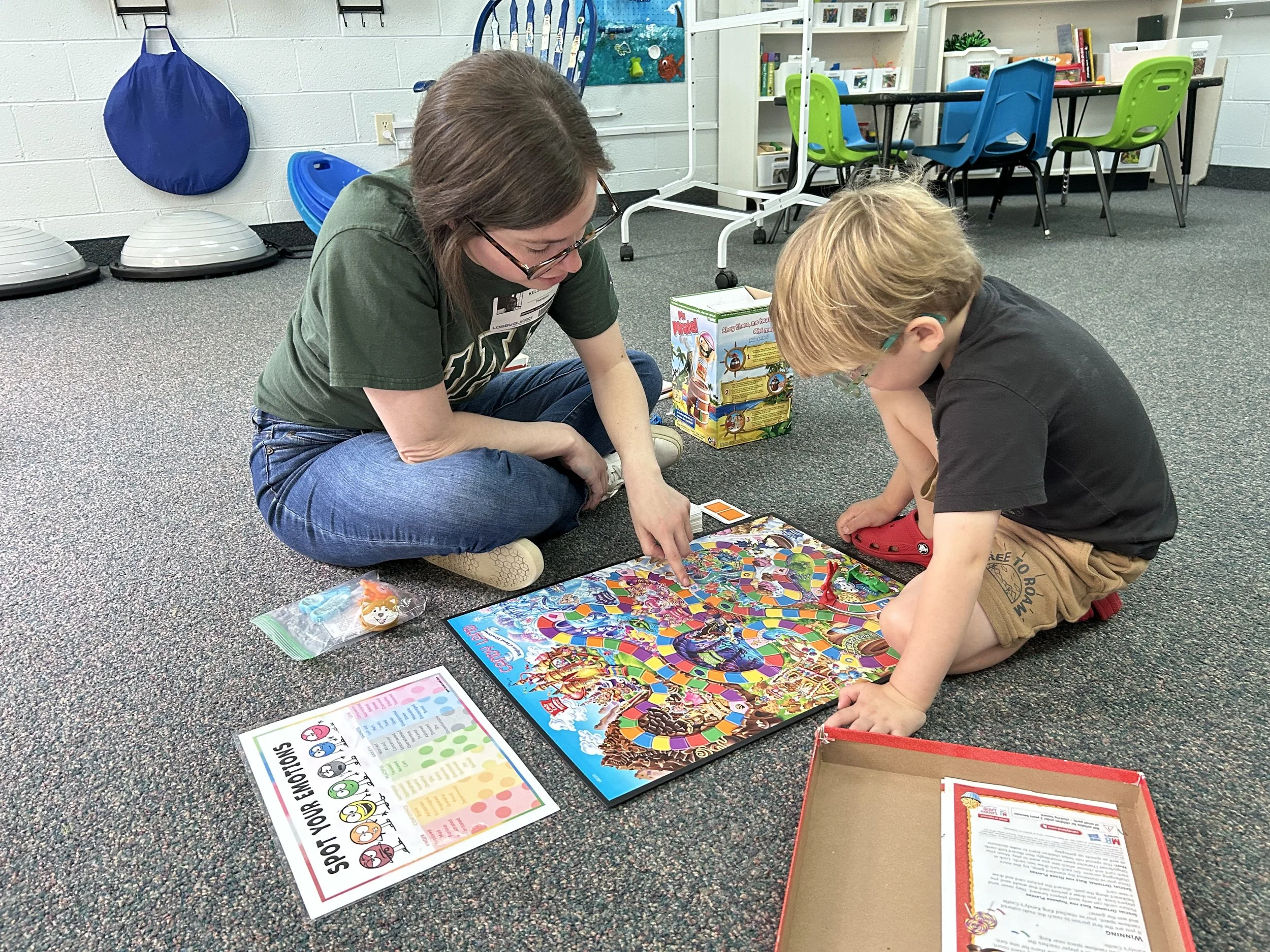Education is So Much More than Academic
In recent years, educators across the country have noticed a much needed shift in building resilience in school-aged children. B’nai Shalom has always prioritized social-emotional education for its students, but in recent years, as the conversation has shifted, B’nai Shalom has placed more emphasis on this part of a student’s holistic educational experience.
A teacher uses colors in the game Candy Land to talk about feelings with a young student.
What educators know to be true is that students can not succeed in the classroom if their basic emotional needs are not met. Therefore, teachers at B’nai Shalom have made innovative changes to their teaching approach to weave social-emotional learning (SEL) into daily activities. This full embrace of SEL recognizes it as a component in the classroom dynamic and builds the learning process into everyday situations allowing for growth in “real-time.”
At B’nai Shalom this work starts in preschool and is carried all the way to 8th grade. Not only are teachers implementing this approach in the classroom, but the school hosts multiple parent workshops throughout the year to create a common language among students, teachers, and parents when talking about social-emotional needs. “We’ve noticed more demand for social-emotional support in this generation, so we are working to increase tools teachers and parents have at their disposal so that they can effectively respond, not only in the moment, but in a proactive way,” says School Counselor Sarah Cronin.
Over the summer, Cronin received virtual training from the Trauma & Resiliency Center in Israel. She brought what she learned to B’nai Shalom, and she and Michele Knight, Child Development Specialist, are leading this important initiative in the school. Additionally, Perri Hoyt, K-8 Director, is addressing SEL at B’nai Shalom as part of a 2-year teacher leadership program she is completing at Brandeis University. As a former school counselor, Hoyt shares that SEL is the foundation for good teaching. “You can’t access education if you can’t be regulated in the classroom,” she says.
Character traits, such as kindness, are introduced each month and integrated into the classroom.
Each week, Cronin & Knight lead professional development sessions that are tailored to the teacher’s specific classrooms. They are leading a book study with one group of teachers using a workbook called “Social & Emotional Development in Early Interventions” by Dr. Mona Delahooke. This workbook teaches strategies for self regulation as well as classroom management while inviting educators into reflecting on their individual classroom dynamic. Teachers are then able to implement individualized social-emotional interventions based on the unique child and what is happening in the classroom at a given point in time. “A teacher's ability to provide an individualized response to a child’s social-emotional needs is crucial for building a healthy relationship with their students,” shared Knight. “This relationship is foundational and has an impact on all other domains of education.”
“Most teachers have the innate ability to do this work,” says Hoyt, “they just don’t have the time, resources, or support.” B’nai Shalom is changing that. “We want students to come here and feel safe,” Cronin says. “And part of that is truly seeing, accepting, and helping the whole student, not just the academic part.”


